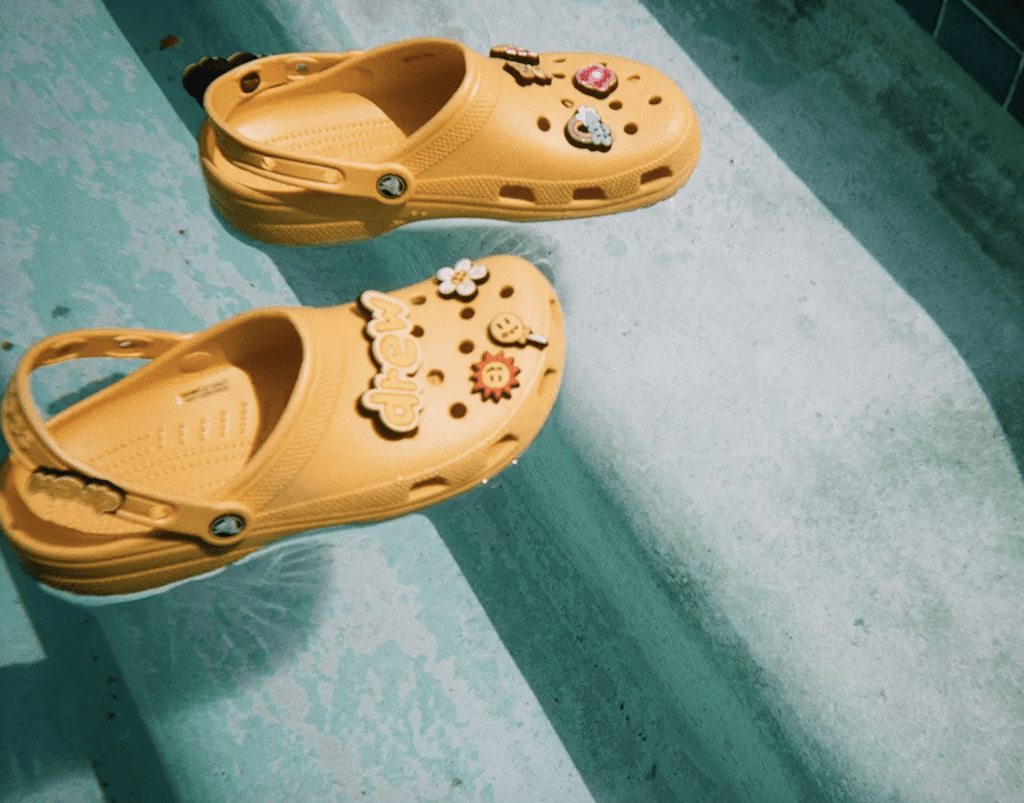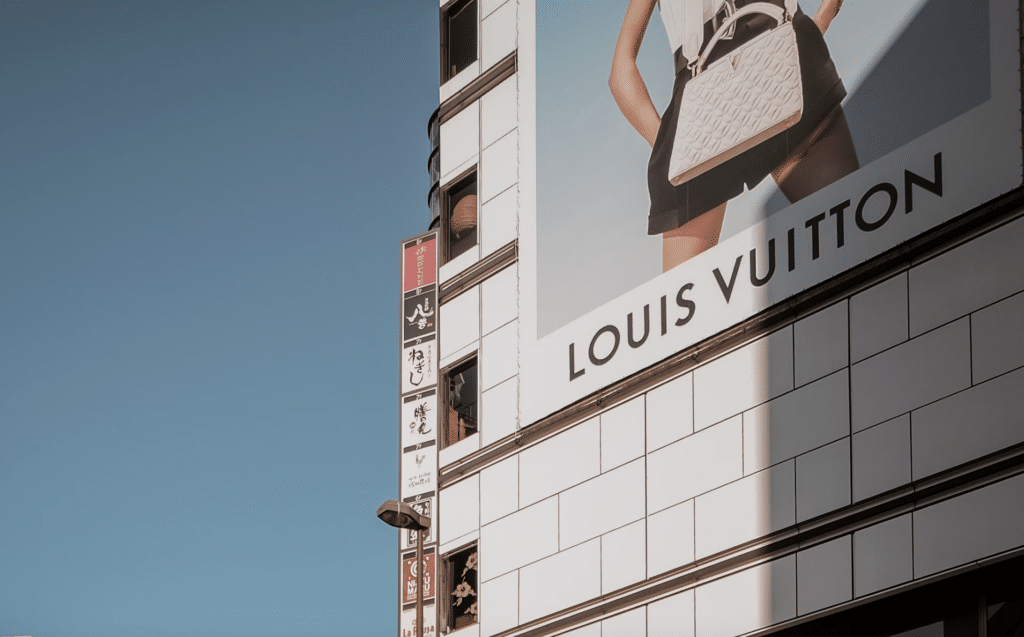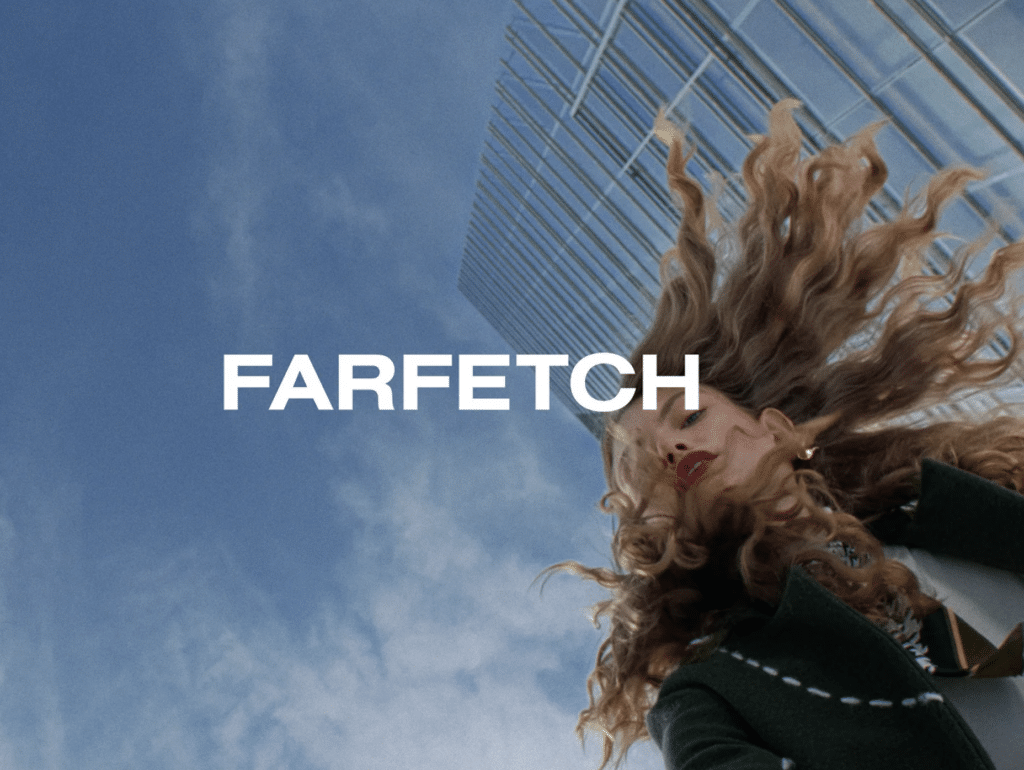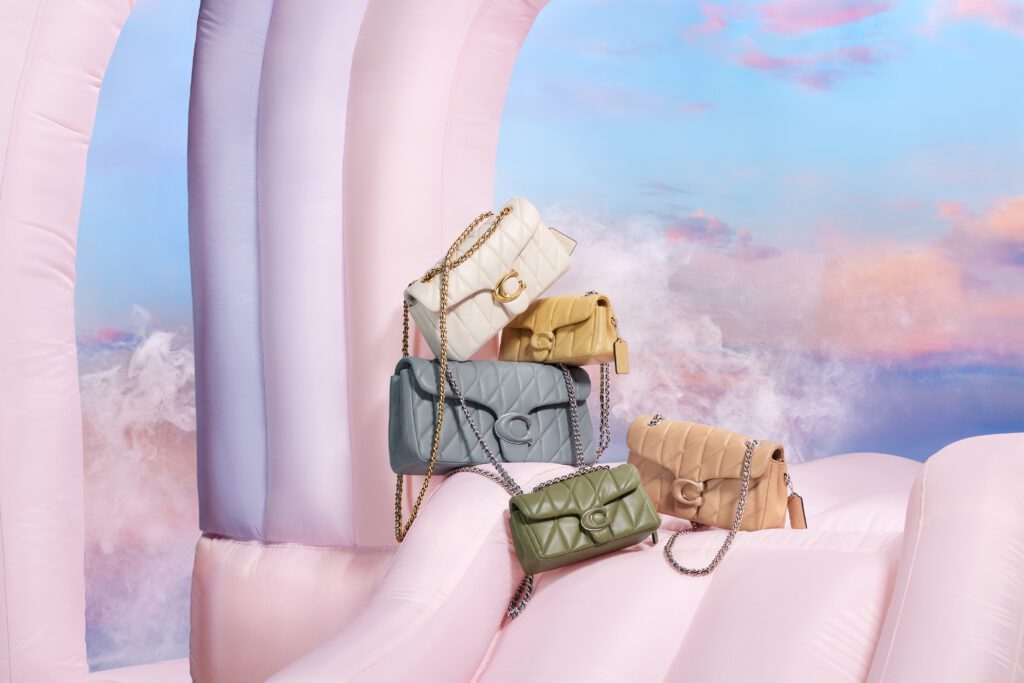This year, the filing of a number of fashion and broader retail industry lawsuits and developments in previously-filed ones stood out in the crowded landscape of litigation in many cases because they indicate larger trends within the fashion space. These included lawsuits that stem from the burgeoning resale market, with a few customization and upcycling-centric matters, in particular, proving to be timely, along with Chanel’s enduring battle with The RealReal, as brands continue to crack down on how their trademarks are used in the secondary market. At the same time, issues related to sustainability – one of the driving forces behind the enduring rise of resale (along with affordability and availability in light of current holiday shipping/supply demands) – were also at the forefront of a handful of cases that likely shed light on what is to come for brands that are putting forth Environmental, Social, and Corporate Governance-focused marketing.
Not to be overlooked, the striking onslaught of Web3 tech, including non-fungible tokens, has led to a budding string of lawsuits, a pattern that will almost certainly continue for the foreseeable future, as fashion brands (and others) really start to race into the metaverse in order to connect with consumers, and benefit from new revenue streams, and still yet, in what might prove the case for at least some brands, as a way to stake their ground in light of rising instances of unauthorized use of brands’ trademarks in this medium, which mashes up virtual reality, augmented reality, social media, video, and other tech components.
And finally, there are no shortage of sportswear and footwear fights underway, with Nike, adidas, New Balance, and Crocs initiating litigation this year against similarly-situated brands, and of course, Peloton and Lululemon sparring in their recently-lodged rival claims. The bigger picture here, of course, is the continued growth of the activewear market, something that has been helped along (in part) by the pandemic, with the athleisure market, alone, projected to grow to upwards of $450 million by 2026.
Here is a look at a dozen of the many interesting and notable fashion lawsuits and legal developments that we saw in 2021 …
1. Nike Sued MSCHF Over Modified “Satan Shoes”
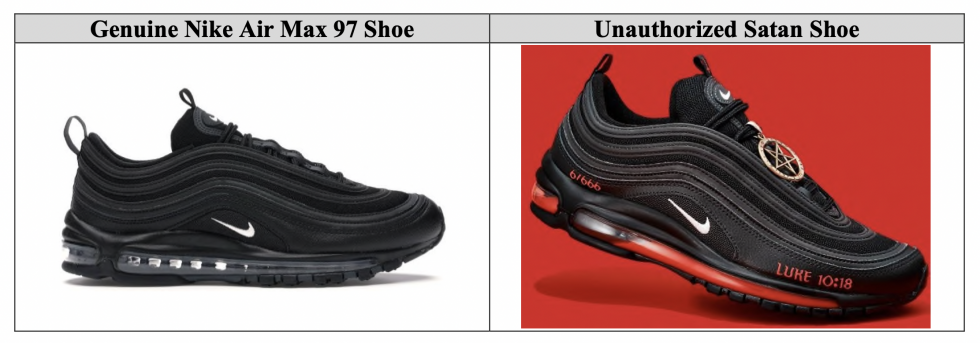
One of the most interesting lawsuits of 2021 was actually one of the quickest to come off of the docket. Within hours of MSCHF dropping more than 600 pairs of its blood-infused “Satan Shoes” in March, Nike filed a trademark infringement and dilution suit, accusing the Brooklyn, New York-based “art collective” of “taking orders for the customized Nike Air Max 97 shoes” that it had “materially altered to prominently feature a satanic theme.” Nike never approved or authorized such customization or the subsequent sale of MSCHF’s Satan Shoes, the Beaverton-based behemoth asserted in its complaint, claiming that while MSCHF may have acquired authentic Nike sneakers, its customization of the sneakers has resulted in shoes that “are not genuine Nike products.”
The heavily-hyped launch caused widespread consumer backlash, including a barrage of social media commentary and calls for a boycott of Nike over the customized shoes, which caused significant damage to its brand, Nike argued.
The case, which settled in a matter of two weeks, raised a number of interesting and timely issues, including ones that center on the legality of marketing and selling originally-authentic, trademark-bearing goods that have been modified, which has been a theme in a number of recent cases, as “bootleg” products and customized goods continue to find favor among consumers, much to the displeasure of the targeted brands.
2. Allbirds Faces Suit Over Sustainability-Centric Advertising
In light of its positioning as a sustainable company, something that is at the heart of its advertising and its IPO filings (and those of a growing number of other companies), Allbirds garnered the attention of a class of plaintiffs this year, who claim that the footwear-marker is not living up to the claims that is makes in its marketing, including about the carbon footprint of its products, and its “sustainable” and “responsible” manufacturing practices.
According to the complaint that she filed in a New York federal court this summer, plaintiff Patricia Dwyer claims that Allbirds knows that “consumers are increasingly influenced by the business practices of companies they choose to engage with, [and that] factors important to consumers include whether a company acts in way that protects the environment, labor practices and animal welfare.” The brand’s “marketing is based on all these factors, which has helped it become worth over one billion dollars,” Dwyer asserts. However, she argues that despite its advertising being “replete with eco-friendly phrases,” the reality of Allbirds’ operations does not match that “eco-friendly”-focused marketing, and the footwear brand is peddling “false, deceptive and misleading” information.
Not the only brand facing legal pushback over its green claims, Canada Goose is embroiled a false advertising suit after allegedly misleading consumers about the nature of the trapping methods used to source the fur for its buzzy jackets by claiming that it is dedicated to “the ethical, responsible, and sustainable sourcing and use of real fur.”
3. Miramax v. Tarantino Joins a Growing List of NFT Lawsuits
Miramax v. Tarantino is the latest lawsuit to center on the budding field of non-fungible tokens (“NFT”). Eager to cash in on the tech trend that has taken over the web, Miramax claims that Quentin Tarantino “announced plans to auction off seven ‘exclusive scenes’ from the 1994 motion picture Pulp Fiction in the form of NFTs.” The problem with that, according to Miramax’s November copyright and trademark infringement, and breach of contract complaint, is that the famed director “granted and assigned nearly all of his rights to Pulp Fiction (and all its elements in all stages of development and production) to Miramax,” including those that would enable him to legally sell the NFTs at issue.
The Miramax case is one of the most high-profile examples in the budding field of NFT-related litigation. It follows from the similarly-noteworthy July 2021 securities class action lawsuit that an individual named Jeeun Friel filed against Dapper Labs Inc., alleging that the defendant’s NBA Top Shot platform actually sold securities when it offered up NBA-centric NFTs, and ran afoul of U.S. securities laws in the process, as the NFTs were not registered with the Securities and Exchange Commission.
4. The RealReal Files Anti-Competition Counterclaims Against Chanel
In February, a New York federal judge gave The RealReal (“TRR”) the go-ahead to amend its answer in the trademark infringement and counterfeiting case filed against it by Chanel in 2018 to assert anti-competition counterclaims. The crux of TRR’s antitrust arguments is that Chanel has been quietly carrying out an “aggressive campaign” of “exclusionary and anticompetitive conduct” aimed at “monopoliz[ing] the market” – and thus, the supply and price of its goods, both new and pre-owned – to the detriment of its competitors and consumers, alike. In direct response to the burgeoning, multi-billion-dollar luxury resale market, which is “a new threat to the core of [Chanel’s] business model,” TRR alleges that Chanel has gone beyond the work of a diligent company looking to preserve the meticulously-crafted positioning of its rarefied luxury brand in the face of the evolving modern marketplace.
TRR asserts that the 110-year old luxury stalwart has “attempted, acquired, and maintained monopoly power” in the “relevant market” by way of an ongoing scheme to “impair the growth and development of innovative resale rivals like TRR who threaten Chanel’s dominance” by “creating a robust resale market where none previously existed,” and thereby, giving consumers increased access to “a rich supply of Chanel handbags that would not otherwise be available to [them].”
While the proceedings in the case were put on hold earlier this year as Chanel and TRR participated in mediation, the stay has since been lifted in light of the parties’ failure to reach a settlement.
5. adidas Files Suit Against Thom Browne Over Stripe Trademarks
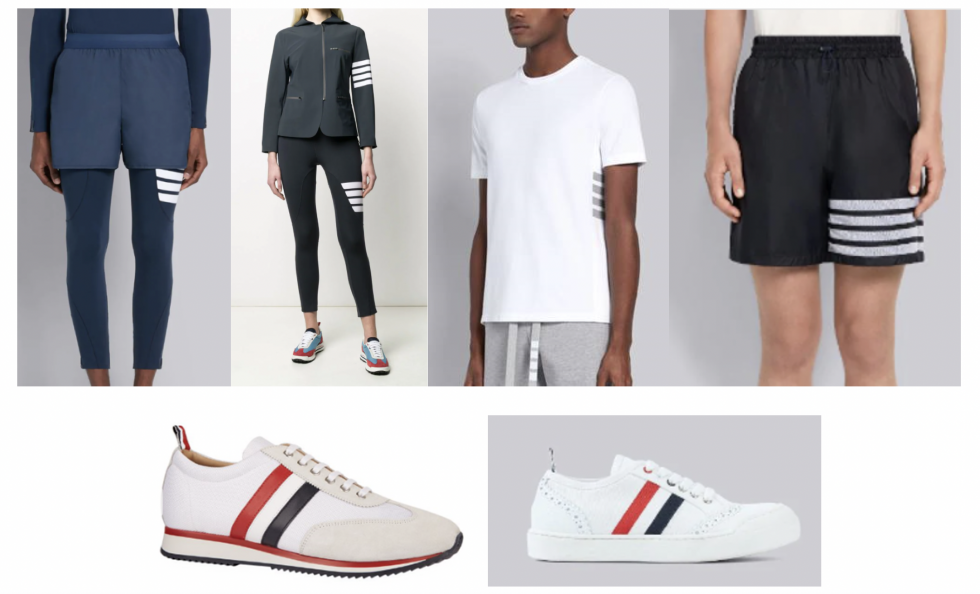
Adidas is suing Thom Browne in one of the latest battles that it has waged over its famous three stripes. According to the trademark infringement and dilution complaint that it filed in a New York federal court on in June, adidas claims that “despite Thom Browne’s knowledge of [its] rights in the famous three-stripe mark,” which adidas says that it has been using since as early as 1952, the New York-based fashion brand “has expanded its product offerings far beyond [its] formal wear and business attire speciality,” and is “now offering for sale and selling athletic-style apparel and footwear featuring two, three, or four parallel stripes in a manner that is confusingly similar to adidas’s three-stripe mark.”
Even though adidas’s stripes serve as a “widely recognized” trademark that acts as an “indicator of the origin of [its] goods” and have been famous since “long before Thom Browne began distributing, marketing, promoting, offering for sale, or selling” sportswear that bears lookalike stripe marks, adidas alleges that Browne has taken to offering up sportswear that “imitates [its] three-stripe mark in a manner that is likely to cause consumer confusion and deceive the public regarding its source, sponsorship, association, or affiliation,” and thereby, is “irreparably harming adidas’s brand and its extremely valuable [mark].”
Counsel for Thom Browne has since claimed that adidas has “failed to properly and adequately plead ownership of valid trademark rights that could be the basis of its claims and has failed to identify the specific Thom Browne products that could possibly violate adidas’s purported rights.”
6. Nike Says it Cannot Allow “Customizers” to Build Businesses Off of its Famous Trademarks
On the heels of its short-lived legal battle against MSCHF, Nike has taken on the increasingly robust customs market by way of a number of lawsuits, with the Beaverton, Oregon-based sportswear behemoth asserting that it – and its wildly valuable trademarks – are facing “a growing threat [of] unlawful infringement and dilution by others that seek to unfairly trade-off of Nike’s successes by leveraging the value of Nike’s brand to traffic in fake products.” One of those third-parties that is looking to piggyback on the appeal of Nike and the burgeoning customization market? Drip Creationz.
In the complaint that it filed in a federal court in California on July, Nike claims that Drip Creationz is on the hook for trademark infringement and dilution, and counterfeiting, among other causes of action, for offering up and selling products “purporting to be genuine Nike products, but that are, in fact, counterfeits,” namely, “knockoff Air Force 1-style shoes that it refers to as ‘D1’ shoes,” which bear designs that allegedly infringe upon Nike’s registered trademarks for to its Air Force 1 shoes and that have “crooked proportions, messy stitching, cheap details, and [are] taller than the real Air Force 1 shoes.”
7. Nike Initiates ITC Case to Block adidas From Importing “Infringing” Primeknit Sneakers
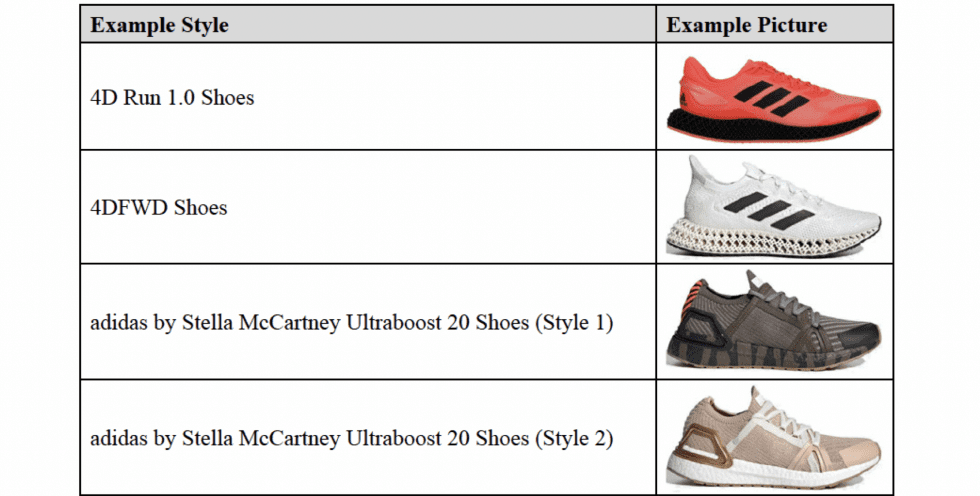
An almost decade-long fight between Nike and adidas recently spilled over into a proceeding before the International Trade Commission (“ITC”), with Nike asking the federal trade body to block the import of adidas’ Primeknit footwear on the basis that the sneaker tech infringes a number of its utility patents. In the complaint that it filed with the ITC this month, Nike alleges that adidas is violating Section 337 of the Tariff Act of 1930 by importing sneakers that infringe upon its rights in the “game-changing” Flyknit tech and the “novel method of designing and manufacturing uppers that enables Nike to create footwear that excels in performance, design, and aesthetics, while reducing materials and waste.”
Unlike itself, Nike claims that “adidas AG, adidas North America, Inc., and adidas America, Inc. (collectively, ‘Respondents’ or ‘adidas’) have forgone independent innovation,” and instead, have “spent much of the past decade challenging several of Nike’s patents directed to Flyknit technology.” All the while, as adidas was “unsuccessfully challenging” the Flyknit patents, the German sportswear giant “continued to use Nike’s patented technology without permission,” Nike claims. The result, according to the Beaverton, Oregon-based behemoth? “Today, adidas offers dozens of footwear products that infringe Nike’s patents,” including by way of its “many so-called Primekit shoes.”
8. Peloton Sues, Lululemon Countersues in Apparel Fight
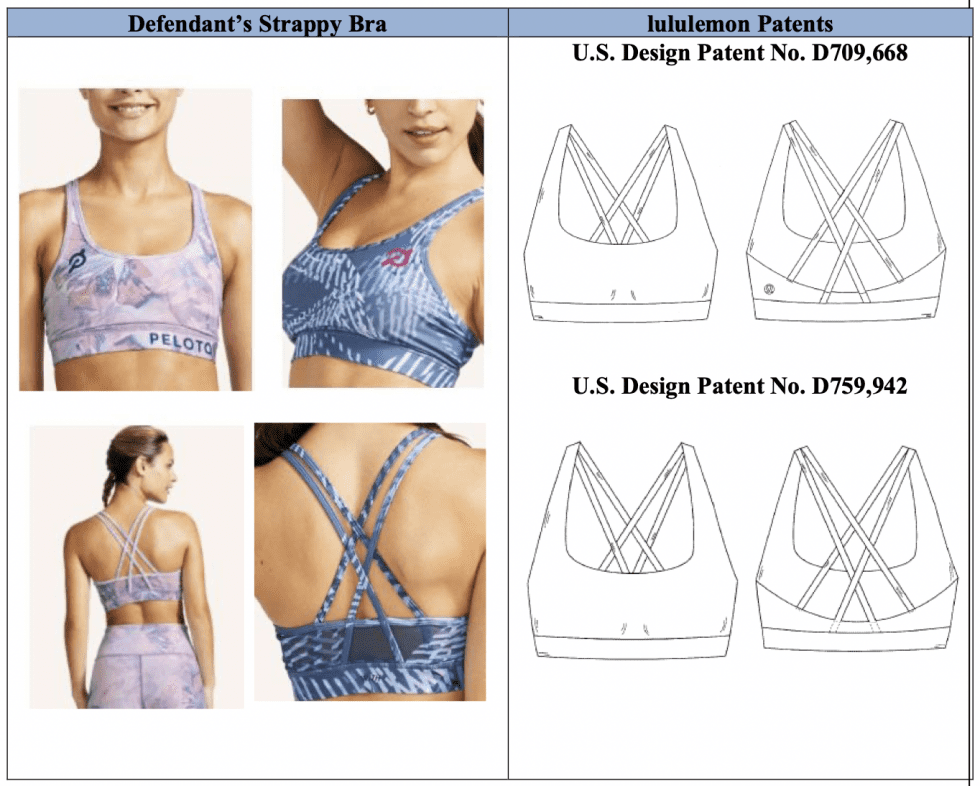
A behind the scenes scuffle between Lululemon and Peloton recently landed in federal court, with the exercise bike -maker arguing that Lululemon threatened it with litigation over its “similarly striking” garments. According to the declaratory judgment action that it filed with the U.S. District Court for the Southern District of New York on November 24, Peloton claims that just over two months after it launched an activewear collection of its own and terminated its 5-year apparel partnership with Lululemon, the Vancouver-based athleticwear company has alleged that a handful of Peloton’s private label products infringe its design patents, and that a pair of Peloton-branded leggings infringes its trade dress rights.
Lululemon has responded to Peloton’s declaratory judgment action with a counter suit, arguing that the New York-based Peloton is on the hook for design patent and trade dress infringement in connection with its sale of “copycat” athleticwear on the heels of pulling the plug on the parties’ 5-year-long co-branding partnership. According to the complaint that it filed in a California federal court, Lululemon claims that “unlike innovators such as [itself],” when Peloton opted to launch its own collection of apparel, it “did not spend the time, effort, and expense to create an original product line, [and] instead, Peloton imitated several of lululemon’s innovative designs and sold knock-offs of lululemon’s products, claiming them as its own.”
9. Tiffany & Co., Costco Settle Years-Long Lawsuit Over Sale of “Tiffany” Rings
This year, Tiffany & Co. and Costco settled their long-running lawsuit over the warehouse chain’s sale of “Tiffany” rings that were not made or authorized by the famed New York jewelry company. The July settlement follows from a win for Costco last summer when the U.S. Court of Appeals for the Second Circuit vacated a lower court’s summary judgment decision – in which it held that Costco was liable to Tiffany & Co. for willful trademark infringement and counterfeiting – and remanded the case back to the district court for a new trial. In contrast with the trial court judge’s finding, the appeals court held that reasonable jurors could have found that “discriminating” Costco customers would not be confused about the source of the rings and that Costco’s use of the “Tiffany” name was not meant to mislead customers.
The case got its start on February 14, 2013 when Tiffany & Co. filed suit against Costco in a New York federal court, accusing the Issaquah, Washington-headquartered retail chain of trademark infringement, counterfeiting, and unfair business practices, among other causes of action, and seeking tens of millions of dollars in damages. According to Tiffany, Costco had sold engagement rings – some costing upwards of $6,000 – using the “Tiffany” name to thousands of Costco members, who snatched up the sparklers under the false impression that they were authentic Tiffany products. According to Tiffany’s estimates, some 3,349 customers purchased “Tiffany” rings at Costco during the relevant period.
10. 1-800 Contacts Names Warby Parker in Keyword Search Lawsuit
Warby Parker is looking to tap into the pool of millions of customers that 1-800 Contacts has amassed as a result of more than a decade in business and hundreds of millions of dollars worth of “advertising, marketing, and promotion,” the Draper, Utah-based contacts company has argued. According to the complaint that it filed in a New York federal court in August, 1-800 Contacts asserts that Warby Parker is engaging in “continuing trademark infringement, unfair competition, and deceptive advertising practices” in an effort to attract consumers given its status as a “new entrant in the online contact lens marketplace.”
In addition to “trad[ing] off 1-800 Contacts’ brand name and reputation through unauthorized bidding on 1-800 Contacts’ trademarks as search engine keywords that generate Warby Parker advertisements,” 1-800 Contacts claims that Warby Parker has hijacked the allegedly “distinctive look and feel” of the its website – namely, “the prominently featured shade of light blue on its homepage,” as well as “the light blue rectangular shaded box that spans most of the screen in a horizontal configuration and displays representative contact lens product packages to the right of a discount offer to ‘Get 20% off your first order’” – in an attempt to dupe consumers given its status as a relatively “new entrant in the online contact lens marketplace.”
Warby Parker has since asserted that, among other things, 1-800 Contacts does not maintain rights in the appearance of its website, in part, because “multiple companies selling contact lenses online use the color blue and/or the same general layout as referenced [by 1-800 Contacts] in connection with their online promotion, advertisement, and sale of contact lenses.”
11. New Balance Claims that Michael Kors is Infringing its Famed Trademarks Via Lookalike Sneakers

In an effort to police its famous “N” and the source-identifying design of its 574, New Balance filed suit against Michael Kors this summer on the basis that the fashion brand “recently began using an N design on footwear that is virtually identical and confusingly similar to” its own mark, as well as the trade dress-protected design of its 574 sneakers. According to the complaint that it filed in a federal court in Massachusetts in August, New Balance claims that Kors’ “intentional adoption of a letter N on footwear is likely to cause confusion among consumers and/or suggest an affiliation, connection, or association [with] New Balance” when no such affiliation exists.
To make matters worse, New Balance assets that “Michael Kors (the individual) is a well-known ‘fan’ of New Balance, which increases the potential for consumers to mistakenly believe that the Michael Kors products are licensed by or affiliated with New Balance,” which points to a Harper’s Bazaar interview in which Mr. Kors states that he has “a good 15 pairs of New Balance in black, and I don’t always wear black. In the summer I’ll go to this dusty putty color. That’s my summer shoe.”
12. Crocs is Looking to Block Infringing Imports of its Wildly Popular Clogs
And in one final footwear fight, Crocs filed a complaint with the U.S. International Trade Commission in June, claiming that two dozen companies – from Skechers to Loeffler Randall – are engaging in the unlawful importation and sale of “certain footwear products and packaging that violate registered trademarks used in connection with certain Crocs shoes,” including Crocs’ registered trademark rights in its “CROCS” word mark, as well as “the three-dimensional configuration of the outside of an upper of a shoe, the textured strip on the heal of the shoe, the decorative band along the length of the heel strap.”
The surge in lookalike footwear comes as Crocs has been riding a striking wave of demand that intensified amid the COVID-19 pandemic, sending sales of its signature foam clogs through the roof. At the time of filing, the Bloomfield, Colorado-based Crocs revealed that its quarterly revenues had groww by 64 percent to $460.1 million up from $281.2 million a year earlier, topping analyst expectations of $415 million for the 3-month period.




